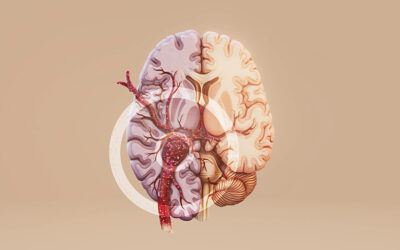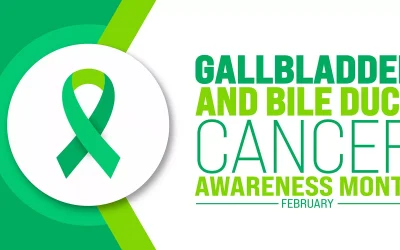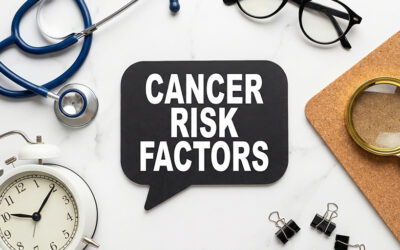Breast Cancer Awareness Month 2025: From Awareness to Action

You might be surprised to know that 1 in 8 women worldwide is at a high risk of developing breast cancer during her lifetime. In 2022 alone, there were more than 2.3 million new cases and nearly 670,000 deaths linked to breast cancer. India too is facing a rising burden, with projections showing over 2.3 lakh new breast cancer cases by 2025, positioning it as the leading cancer among women in the country. The good news is that breast cancer is treatablewhen detected early, and with timely access to care, many patients go on to lead healthy and fulfilling lives. That is why initiatives like Breast Cancer Awareness Month play such an important role, by encouraging communities to recognise early signs, promoting regular screening, and standing in solidarity with those affected by the condition.
In this article, we will discuss the importance of Breast Cancer Awareness Month 2025, the symptoms that should never be ignored, common myths, screening recommendations, and the role of Graphic Era Hospital in providing expert breast health care in Dehradun. Let’s begin.
Table of Contents
ToggleWhat is Breast Cancer Awareness Month?
Breast Cancer Awareness Month is observed every October as a global health campaign dedicated to spreading knowledge about breast cancer, promoting early detection, and supporting those living with the condition. The initiative began in 1985 as a week-long campaign led by the American Cancer Society, and over the years it expanded into a month-long global movement that is now one of the most recognised health awareness campaigns in the world.
Campaigns during this period aim to:
- Encourage women to undergo regular breast cancer screening and mammograms.
- Educate communities about risk factors, preventive measures, and the importance of early signs.
- Raise funds for research and treatment advancements.
- Offer emotional and social support to patients and families.
By combining awareness with action, Breast Cancer Awareness Month empowers individuals and communities to reduce stigma, improve survival rates, and build stronger support networks.
Common Symptoms of Breast Cancer and When to See a Doctor
Breast cancer can present with different signs, some of which may appear gradually while others are noticed suddenly. Recognising these changes early and acting promptly improves the chances of successful treatment.
Common Symptoms of Breast Cancer
- A lump or thickened area in the breast or underarm.
- Changes in breast size, shape, or contour.
- Skin dimpling, redness, or a persistent rash.
- Nipple changes such as inversion, ulceration, or unusual discharge.
- Continuous discomfort or unexplained breast pain.
When to See a Doctor
Seek medical attention without delay if any of these symptoms are persistent, worsening, or interfering with daily activities. Even if the changes seem minor or painless, professional evaluation through imaging and clinical examination is essential. Early consultation ensures timely diagnosis and prevents progression to advanced stages.
The Pink Ribbon and Its Significance in Breast Cancer Awareness
The pink ribbon is one of the most powerful symbols of breast cancer awareness. Introduced in the early 1990s, it was created to unite people in spreading knowledge and supporting those affected by the condition.
Its significance lies in what it represents:
- Hope: Encourages women to undergo early screening and reinforces that timely detection can save lives.
- Solidarity: Reminds patients and families that they are not alone in their journey.
- Action: Inspires individuals and organisations to participate in awareness campaigns, research, and support programmes.
Each October, the pink ribbon becomes a collective message of strength, compassion, and commitment in the global fight against breast cancer.
Can Breast Cancer Be Cured if Found Early?
The chances of treating breast cancer successfully are highest when the condition is detected at an early stage. Early detection usually means the tumour is smaller, less likely to have spread, and can often be treated with surgery, medication, or targeted therapies that achieve better outcomes.
Studies show that survival rates improve significantly when breast cancer is diagnosed before it advances. Many patients treated in the early stages go on to live long and healthy lives, highlighting the importance of awareness and regular screening.
While treatment success depends on factors such as the type of cancer, stage at diagnosis, and overall health of the patient, early detection continues to be the strongest tool in reducing mortality and improving quality of life.
Myths vs Facts: Clearing Common Misconceptions About Breast Cancer
Despite growing awareness, many myths about breast cancer continue to circulate, often delaying timely screening and treatment. Separating facts from misconceptions is essential for better understanding and prevention. Here are some widespread myths about breast cancer and the facts behind them:
Myth: Only women get breast cancer.
Fact: While breast cancer is far more common in women, men can also develop it. Awareness is important for both genders.
Myth: A painless lump is harmless.
Fact: Not all breast cancers cause pain. Any lump that persists must be examined by a breast pain doctor.
Myth: Mammograms are unsafe due to radiation.
Fact: Mammograms use very low doses of radiation, and the benefits of early detection outweigh the minimal risk.
Myth: Breast cancer always runs in families.
Fact: Most cases occur without a family history. Lifestyle, hormonal, and environmental factors also play a role.
How Often Should You Get a Mammogram or Screening Done?
Regular screening helps detect breast cancer at an early stage, often before any symptoms are noticed. How often you need screening depends on your age, family history, and overall risk.
- For most women: Doctors usually recommend starting mammograms around the age of 40 and repeating them every one to two years.
- For women at higher risk: Those with a family history of breast or ovarian cancer, or known genetic risk, may need to start screening earlier and have it more often. A doctor can guide the right plan.
- In India: Public health programmes advise clinical breast examination (CBE) for women between 30 and 65 years, with mammograms recommended where the facility is available.
If you are looking for “breast cancer screening near me,” it is best to visit a trusted hospital that offers advanced imaging, accurate reports, and consultation with specialists.
Who is at Risk for Breast Cancer and How to Lower the Risk?
Anyone can develop breast cancer, but certain factors increase the chances. Understanding these risks can help in taking preventive steps and planning regular screening.
Common Risk Factors
- Ageing, with most cases seen in women over 40.
- Family history of breast or ovarian cancer.
- Inherited genetic mutations such as BRCA1 and BRCA2.
- Hormonal factors, including early menstruation, late menopause, or hormone replacement therapy.
- Lifestyle factors such as obesity, alcohol use, physical inactivity, and unhealthy diets.
Ways to Lower the Risk
- Maintain a healthy weight through balanced meals rich in dietary fibre, fruits, vegetables, and whole grains.
- Stay physically active with regular exercise.
- Limit alcohol consumption and avoid smoking.
- Breastfeed if possible, as it may offer protection.
- Go for timely screenings and consult a doctor if at higher risk.
What Can You Do This Breast Cancer Awareness Month to Support the Cause?
Breast Cancer Awareness Month is not only about wearing pink but also about taking meaningful action that can save lives and support communities. Everyone can contribute in simple yet impactful ways.
- Schedule a screening: Book a mammogram or clinical breast examination and encourage friends and family to do the same.
- Share knowledge: Use social media or community gatherings to spread awareness about early signs, screening, and prevention.
- Support patients and families: Offer emotional support, join local awareness walks, or volunteer with support groups.
- Contribute responsibly: Donate to trusted organisations or hospitals that fund treatment, screening, and research, while avoiding products linked to “pinkwashing.”
- Promote healthy living: Encourage dietary changes, regular exercise, and reduced alcohol use to lower risk.
By turning awareness into action, communities can work together to reduce the burden of breast cancer and bring hope to countless lives.
Why Choose Graphic Era Hospital for Breast Health & Screening?
At Graphic Era Hospital, breast health is approached with precision, expertise, and compassion. We provide:
Experienced Breast and Oncology Specialists
A skilled team of oncologists, radiologists, and cancer surgeons provide personalised care for every patient, from preventive screening to advanced treatment planning. Their expertise ensures that even complex cases are managed with confidence and clarity.
Advanced Technology and Minimally Invasive Procedures
The hospital is equipped with digital mammography, breast ultrasound, image-guided biopsies, and other advanced diagnostic tools. These facilities improve accuracy and help detect breast cancer at its earliest stages, when treatment is most effective.
Comprehensive Rehabilitation and Personalised Care
Care extends beyond diagnosis and treatment. Patients receive support through nutritional counselling, physiotherapy, and psychological guidance, ensuring recovery is not just physical but also emotional. Every care plan is tailored to individual needs, reinforcing the hospital’s commitment to patient-centred healing.
With its combination of medical excellence, advanced technology, and compassionate care, Graphic Era Hospital stands as a trusted centre for breast health and screening in Dehradun and Uttarakhand.
Final Word
Breast Cancer Awareness Month serves as a reminder that awareness alone is not enough unless it is followed by timely action. Recognising early signs, going for regular screenings, and seeking medical help without delay can make a life-saving difference. At Graphic Era Hospital, Dehradun, patients receive expert guidance, advanced imaging, and personalised care plans designed to ensure both safety and long-term well-being. To book a consultation with our specialists, call 1800-889-7351, and take the first step towards proactive breast health.
Frequently Asked Questions
Why is early detection of breast cancer so important?
Early detection improves treatment outcomes, reduces the need for aggressive therapies, and increases survival rates. When breast cancer is found at an early stage, many patients can be treated effectively with less complex procedures.
How do I find breast cancer screening near me?
You can search for trusted hospitals or diagnostic centres that provide mammograms and breast ultrasounds. In Dehradun, screening services are available at leading hospitals, including Graphic Era Hospital.
Which hospitals in Dehradun offer mammogram services?
Graphic Era Hospital in Dehradun provides mammogram facilities along with advanced breast imaging and specialist consultations for accurate diagnosis.
What age should women start breast cancer screening?
Most guidelines recommend starting mammograms at 40 years of age for women at average risk. In India, clinical breast examination is also advised from 30 years onwards. Women with family history or genetic risk may need earlier screening.
Can men also get breast cancer?
Yes. Although rare, breast cancer does occur in men. Awareness and timely consultation are important, especially if there are symptoms such as lumps, nipple changes, or discharge.
Are mammograms painful or risky?
Mammograms may cause temporary discomfort due to breast compression, but the procedure is safe. The radiation dose is very low, and the benefits of early detection outweigh any risks.
What lifestyle changes lower breast cancer risk?
Maintaining a healthy weight, staying active, eating a diet rich in dietary fibre, limiting alcohol, avoiding smoking, and breastfeeding (when possible) can help reduce risk.
How do breast cancer awareness events help communities?
Awareness campaigns educate people about risk factors, encourage screenings, and provide emotional support for patients and families. They also raise funds for treatment and research.
Can breast cancer be cured if detected early?
Yes. Many patients diagnosed at an early stage respond well to treatment and go on to live long, healthy lives.
What kind of support groups exist for patients in Dehradun?
Several hospitals, NGOs, and community organisations in Dehradun organise counselling sessions, survivor networks, and peer support groups for patients and families.
Are there free breast cancer screening camps near me?
During October and other awareness drives, hospitals and NGOs often organise free or subsidised screening camps. Keep an eye on local announcements or contact Graphic Era Hospital for upcoming events.
How can I contribute to Breast Cancer Awareness Month campaigns?
You can take part by joining awareness walks, sharing information, volunteering, donating to trusted organisations, or encouraging loved ones to go for screening.
What role do families play in breast cancer awareness and support?
Families are vital in providing emotional strength, encouraging regular check-ups, helping with treatment decisions, and supporting recovery at home.
By Specialities
- Bariatric Surgery
- Cancer Care
- Cardiology
- Dental
- Dermatology
- Diabetes & Endocrinology
- Endocrinology and Diabetes
- ENT (Ear Nose Throat)
- Eye Care
- Gastroenterology
- Haematology
- Health Awareness
- Health Care
- Health Tips
- Hematology
- Hepatology
- Internal Medicine
- Mental Health and Behavioural Sciences
- Metabolic
- Neonatology
- Nephrology
- Neurology
- Nutrition & Dietetics
- Obstetrics & Gynaecology
- Oncology
- Ophthalmology
- Orthopaedics
- Paediatric
- Physiotherapy & Rehabilitation
- Plastic and Reconstructive Surgery
- Psychology
- Pulmonology
- Rheumatology
- Spine
- Urology
Recent Posts
- A Complete Guide to Blood Clots in the Brain
- Heart Attack: Symptoms and Treatment
- World Obesity Day 2026: Understanding, Preventing, and Managing Obesity
- Bacterial and Viral Pneumonia: Causes, Symptoms, and Treatment Options
- World Hearing Day 2026: Empower Yourself to Protect and Improve Your Hearing
Need expert medical advice?
Share your details and our healthcare specialists will reach out to assist you.
By proceeding, you acknowledge and agree to our Privacy Policy, Terms of Use, and Disclaimer.




















